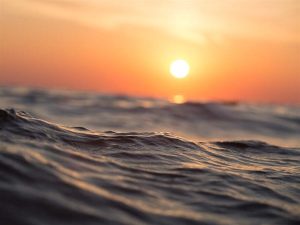Work With Us! Now Hiring: Program Specialist III
 The Global Ocean Monitoring and Observing Program is hiring a Program Specialist III to manage the Sea Level Monitoring Program and the Ocean Carbon Observing Network. Learn more and apply through the University Corporation for Atmospheric Research (UCAR).
The Global Ocean Monitoring and Observing Program is hiring a Program Specialist III to manage the Sea Level Monitoring Program and the Ocean Carbon Observing Network. Learn more and apply through the University Corporation for Atmospheric Research (UCAR).
This position will manage GOMO’s Sea Level Monitoring Program supporting the Global Sea Level Observing System (GLOSS) network of tide gauges that collects real-time measurements of sea level to support long-term climate change studies. For example, the data are used for coastal protection during events such as storm surges; providing flood warning and monitoring tsunamis; tide tables for port operations, fishermen, and recreation; and research into sea level change and ocean circulation.
Additionally, the Program Specialist will support GOMO’s global carbon cycle and biogeochemistry portfolio including the following activities: Bio GO-SHIP, which leverages the GO-SHIP Repeat Hydrography and their analyses of the physical and chemical environment to understand how plankton communities respond to ocean changes and how biological processes impact carbon, oxygen and nutrient cycles; NOAA and Interagency Carbon Dioxide Removal (CDR) activities; and the establishment of the International North Atlantic Carbon Observatory (NACO). All these activities require engagement across NOAA line offices, federal agencies, and the ocean carbon research and observing communities.
This position will be located at the Global Ocean Monitoring and Observing Program in Silver Spring, MD.
What You Will Do:
Maintain GOMO’s global carbon cycle and biogeochemistry portfolio activities including:
Support national coordination of the Bio GO-SHIP project through engagement with other NOAA Line Offices (e.g., NOS), Federal Agencies (e.g., NSF, NASA), relevant programs (e.g., OCB) and working groups, and assist with the preparation of workshops, town halls, special sessions, and outreach material
Serve as a GOMO representative on the North America Carbon Program (NACP) and Ocean Carbon and Biogeochemistry Program (OCB) Aquatic Continuum Focus Group to help identify community-based mechanisms (e.g., workshops, small group efforts, publications, etc.) to facilitate exploration of and progress on high-priority coastal carbon research and other high-level, pertinent NACP-OCB cross-cutting questions.
Serve on the NOAA Carbon Dioxide Removal (CDR) Task Force, the US Global Change Research Program (USGCRP) Carbon Cycle Interagency Working Group (CCIWG) CDR Work Stream and the Joint Interagency marine CDR Investment Group to engage with philanthropic entities and assist with strategic plan development and outreach materials
Contribute towards the establishment of the North Atlantic Carbon Observatory (NACO) to quantify and understand the changing ocean carbon sink in partnership with NOAA programs (e.g., OAP), Labs (e.g., AOML), Federal agency and international partners (e.g. Dalhousie University, Canada).
Lead the management of GOMO’s Sea Level Monitoring Program:
Draft solicitations, manage proposal reviews, prepare project budgets, and make funding recommendations.
Maintain and advance collaboration with the national and international science community, including the GLOSS Network of over 90 countries and territories, on current research directions in the topic area
Participate in NOAA’s interagency planning to leverage and advance sea level monitoring.
Lead the development of workshops, special sessions, and outreach activities focused on sea level prediction and monitoring.
Communicate program progress and achievements to NOAA senior management
Global Ocean Observing System (GOOS) Industry Engagement:
Sustain ongoing industry dialogs, including organizing planning committee meetings, supporting document development, and editing, coordinating with the planning committee and industry representatives, and participating in the dialogue sessions.
Mentor and support the career development of GOMO Knauss Fellows and interns:
Support fellows and interns through skill set development, performance feedback, and by helping to identify resources within and outside of NOAA to allow for career development.
For qualifications, salary range, requirements, and benefit information, please visit UCAR’s career page.